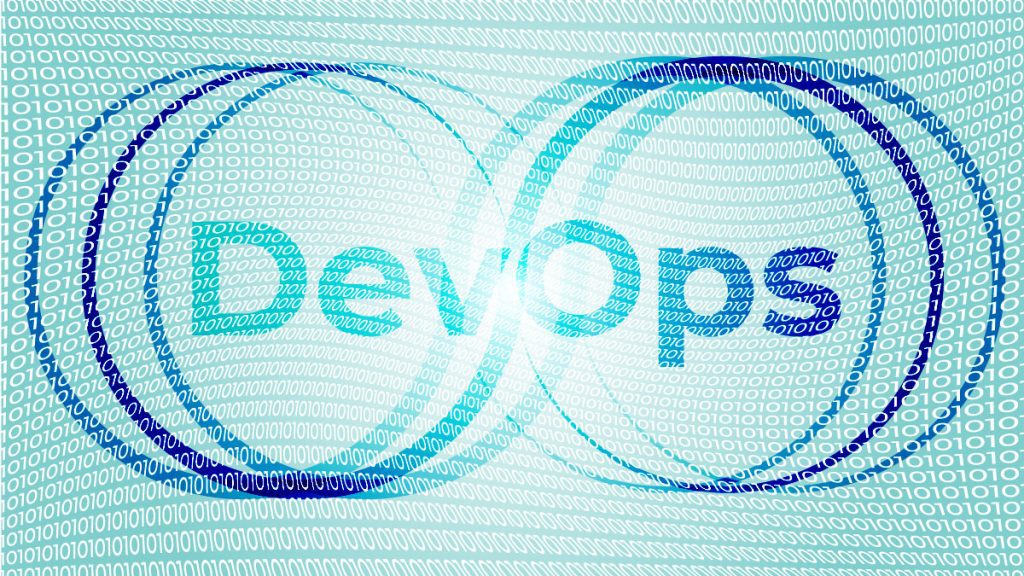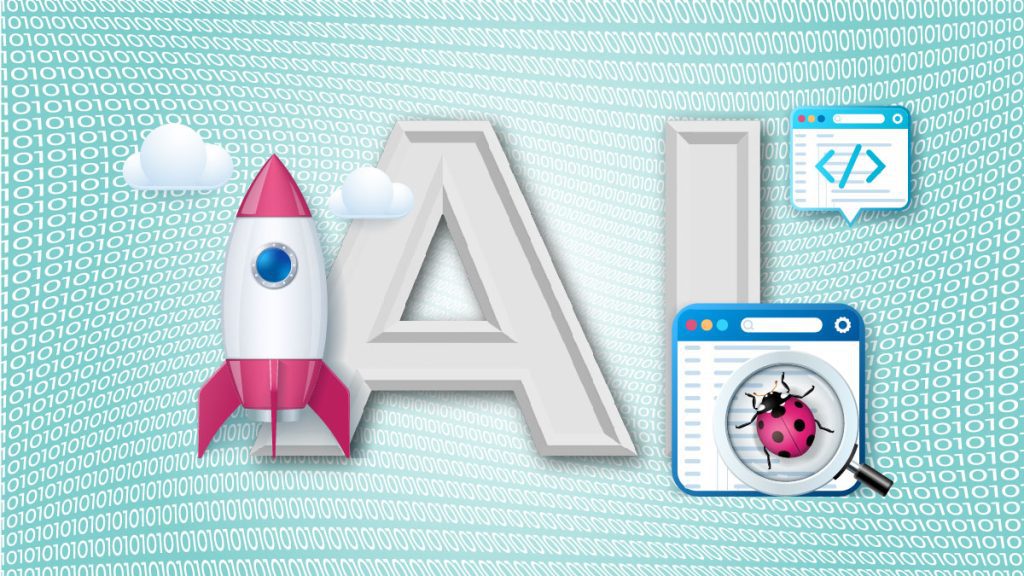
The phrases development and operations are combined to produce the term “DevOps,” which refers to a cooperative or shared approach to the duties carried out by a company’s application development and IT operations teams. With the ubiquitous use of Artificial Intelligence (AI) and Machine Learning (ML) nowadays, how can a DevOps team take advantage of AI?
What is DevOps?
DevOps refers to the use of iterative software development, automation, and programmable infrastructure deployment and maintenance in its most limited sense. The phrase also refers to cultural shifts like fostering cohesiveness and trust between developers and systems administrators and coordinating technical initiatives with organizational needs. The software delivery process, services, employment responsibilities, IT tools, and best practices may all be altered by DevOps.
Although DevOps is not a technology, settings that use it frequently adopt standard approaches. They consist of the following:
- Tools for continuous integration and continuous delivery (CI/CD), with a focus on job automation.
- Real-time monitoring, incident management, configuration management, and collaboration platforms are systems and technologies that assist DevOps adoption.
- Cloud computing, microservices, and containers are adopted simultaneously with DevOps approaches.
DevOps aim to enhance productivity throughout the whole software development lifecycle. A DevOps process can be seen as an endless loop that includes the following steps: Plan, code, create, test, launch, deploy, run, monitor, and — with input from users — plan to restart the loop.
Given the amount of interoperability needed for smooth operations to take place, today’s IT firms and departments are wondering how can a DevOps team take advantage of AI.
The Need for DevOps AI
Natural language processing and machine learning may work together to create technical project requirements of the highest caliber based on widely used standards. This will make it easier to make sure that the settings and operating systems (OS) continue to comply with the company’s security requirements. Using ML technology, DevOps are able to identify project requirement flaws such as immeasurable quantifications and missing requirements.
Project management teams can therefore create superior project requirements while reducing the number of errors and planning flaws, resulting in a highly effective final product.
There are more components to manage as a result of the exponential rise of diverse tools and technologies that underpin modern applications. The additional resources that DevOps teams must manage may be exceedingly time-consuming and difficult, especially when done manually. This is where AI and ML shine the brightest as the demand for increased automation and handling of new technologies grows.
How Can a DevOps Team Take Advantage of AI
AI and machine learning have been adopted into the DevOps industry in a variety of ways. Here are some examples of how DevOps teams take advantage of AI and ML through a perfect merger.

AI and ML Operations
Artificial Intelligence Operations (AI-Ops) and Machine Learning Operations (ML-Ops), respectively, refer to the use of artificial intelligence or machine learning to carry out operational activities. Algorithms may be programmed by teams to carry out tasks automatically during the various stages of the software development lifecycle. To analyze massive volumes of data from the operational tools used in DevOps pipelines, AI-Ops employs analytics and machine learning. This allows them to learn which tasks to prioritize over others and how tow to execute them accurately.
During the construction step, virtual environments for testing source code might be automatically built using artificial intelligence and machine learning. In order to make sure that their resources are completely functional, they can also be employed in the monitoring phase. As a consequence, operations and development keep their infrastructure and applications consistent across the board.
Automation
Workflow automation is increasingly being done by DevOps teams using AI and machine intelligence. Data science, AI, and machine learning techniques may easily and swiftly solve issues. AI, for instance, can quicken the software development lifecycle’s development stages.
How Can a DevOps Team Take Advantage of AI in this instance? The AI offers code recommendations that help the developers while they are still in the development stage.
Additionally, some of the tests required for quality assurance can be generated automatically. In order to validate and deliver code into production more quickly, testing teams might spend less time creating tests and more time on automation inside their testing environments. Beyond simply checking the code, AI and machine learning are capable of doing other automated activities. Based on data sets that were added to machine learning algorithms, they can automate code reviews. This will assist in automating the code optimization process to enhance application performance.
Quality
AI and machine learning may increase automation across the software development lifecycle and also raise the caliber of corporate software. By looking at data from prior code releases and preserved application logs, AI-powered technologies can assist anticipate deployment difficulties.
Teams may then adjust their software releases as they will be aware of the best practices and can put those into practice before sending the program into production. Machine learning may identify problems in the Enterprise Project’s code, such as resource leaks, possible concurrency race scenarios, wasted CPU cycles that can impair the software’s performance, and other performance.
There may be skepticism regarding the dependability of ML and AI in terms of enhancing code quality; however, recent research has demonstrated the dependability of these technologies in terms of managing software.
Security
Although AI and machine learning raise certain security issues, these techniques have shown to be helpful in maintaining the security of infrastructure and services. They are able to find irregularities in systems and services.
But how can a DevOps team take advantage of AI in security? By leveraging rapid anomaly detection and response.
According to GitLab’s DevSecOps study, machine learning techniques and AI-powered data integration speed up anomaly detection even during device bootup. As soon as the device has finished starting up, this will alert DevOps teams of any vulnerabilities in the system. Additionally, machine learning algorithms may be trained to rapidly notify DevOps workers to abnormalities in real-time. They can protect businesses and end users by preventing further software vulnerabilities from being exploited.
Managing compliance in various IT settings is another area where AI and machine learning are helpful. By establishing a baseline for them to follow, DevOps teams may, for instance, train AI or machine learning algorithms to monitor security compliance throughout the organization. Because of this, they are able to halt threats by warning a user about a vulnerability or disabling a device that is not adhering to their security regulations.
Low/No Coding
The IT industry’s increasing use of low- or no-code tools is worth emphasizing. Teams will have less manual management because of artificial intelligence’s capacity for learning and managing technological resources. They will need to write little to no code to make their systems and services function. In fact, it will enable upcoming developers to produce software with less manual labor and straightforward interfaces while retaining the project’s overall quality.
To Wrap Up
How can a DevOps team take advantage of AI in business? Utilizing AI’s speed and accuracy in the development, deployment, management, and testing of infrastructure and software are already being significantly impacted by AI and machine learning. The entire development cycle will be significantly improved by automated testing, anomaly detection, artificial intelligence, and machine learning.
All of these capabilities and technologies should be viewed by DevOps teams as new means of enhancing product quality and better managing their systems and services by shifting some of their manual tasks into automated, AI-powered solutions.
The standards that DevOps teams must manage for their organizations will be less overwhelming if they train algorithms on the tasks and situations that need to be automated. Despite some people’s reservations about these AI-driven tools, DevOps teams’ systems and services will most certainly incorporate AI and machine learning in the years to come.
Inside Telecom provides you with an extensive list of content covering all aspects of the tech industry. Keep an eye on our Technology and Artificial Intelligence sections to stay informed and up-to-date with our daily articles.